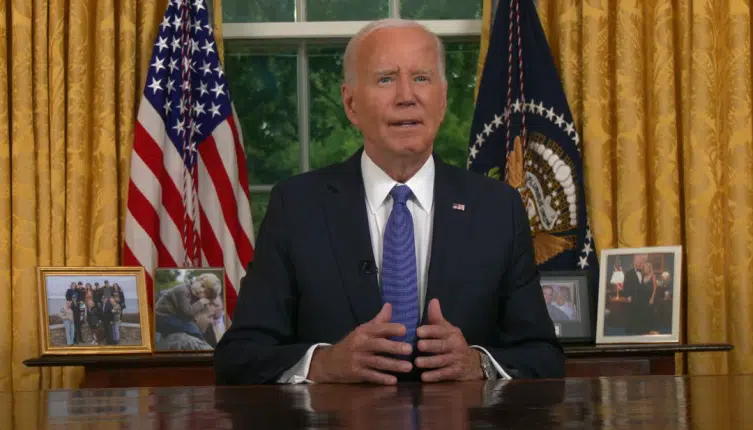By Robert Romano – It’s a perfect economic storm, and the clouds that are gathering now will have grand implications for 2012. Three mortal dangers imperil the U.S. economic Ship of State — and Barack Obama’s hopes at reelection, as each of them calls into question the Keynesian policies he has implemented.
First up are crashing housing prices. On April 26, the S&P/Case Shiller housing price index showed another 1.1 percent decline in home values for the month of February. “We are in a double-dip in housing,” said Americans for Limited (ALG) President Bill Wilson, commenting on the latest data showing the indices fast approaching their April 2009 lows.
“The Obama ‘stimulus’ has failed to achieve its always unrealistic and yet essential goal of propping up home values closer to their bubble highs. Housing prices are still deflating to more realistic levels,” Wilson explained.
“We have wasted over $2 trillion on a lie. The American people were sold the bailouts on the basis that they were saving the value of their homes,” Wilson said. He pointed to Obama’s comments as he signed the $826 billion “stimulus” into law that “We must stem the spread of foreclosures and falling home values for all Americans”. Whoops.
Instead, those who were suckered into government assistance programs believing that a recovery was right around the corner are getting screwed.
In 2009-10, the $8,000 first homebuyers tax credit and $6,500 repeat homebuyers tax credit did have the impact of temporarily greasing the wheels of housing sales and boosting home values slightly, but only momentarily. Now, they’re sagging again.
And the true costs will be felt in the likely negative equity that many of the 3.3 million tax credit homebuyers will find themselves in as the housing market continues to correct itself. Since April 2008, when the tax credit initially went into effect, the 10-city and 20-city composite indices have each dropped 16.7 percent and 18.06 percent, respectively.
In fact, the only tax credit homebuyers who appear to be breaking even are the ones who bought between March and May of 2009. Everyone else it appears is already underwater on their mortgages, based on the data. Making matters worse, new foreclosures continue to soar, rising 6.53 percent in March alone, according to RealtyTrac, a national foreclosure monitoring service.
The program wound up costing taxpayers $22 billion, as reported by the Government Accountability Office, and ultimately has had no impact on declining home values.
Coupled with the Federal Reserve’s $1.25 trillion mortgage-backed securities purchase program, the $150 billion sunk into Fannie Mae and Freddie Mac, the first $150 billion “stimulus” passed in 2008, and the $26.1 billion states bailout of 2010, the federal government spent, borrowed, and printed more than $2.4 trillion to prop up the economy.
Wilson thinks the government should have never gotten involved at all. He said, “The irony is that we should have just let prices hit the bottom without intervention in the first place, and we would already be in recovery,” saying that government actions had “prolonged the recession in housing by avoiding this necessary correction.”
Instead, he would have let the banks and delinquent borrowers fail: “The proper course of action was always to allow a market-based correction to run its course, even if that meant allowing financial institutions that bet poorly on housing to fail.”
Previously, Wilson has pointed to the example of Iceland as a nation that let its banks fail — saving her taxpayers about $120 billion, roughly ten times the size of its economy — and now is in economic recovery. The IMF projects it to grow 2.5 percent this year and the European Commission estimates that it will be running a budget surplus by 2012.
Compare that to Ireland, which did bail out its banks, and now is dependent upon a €67.5 billion European Union bailout, will run a deficit at 9.1 percent of Gross Domestic Product, and is recovering much more slowly.
And compared to the U.S., which will run a record $1.645 trillion deficit this year, has been threatened with a credit rating downgrade by S&P, and whose “recovery” is very much in question now, the Icelandic model looks like a stroke of genius now.
Instead, the U.S. has spent, borrowed, and printed itself into oblivion, which has directly caused the two other mortal dangers to the economy: inflation and the soaring $14.3 trillion debt that threatens the very solvency of the Republic.
On inflation, the Producer Price Index has soared 5.8 percent in the past year, meaning the cost of doing business is rapidly escalating, and now, it’s bleeding into consumer prices, which have already increased 2.7 percent. By next year, it is not far-fetched to suggest that annualized inflation will have jumped to over 10 percent for producers and 5 percent for consumers.
Gasoline is already pushing $4 a gallon, oil is at over $110 per barrel, and gold is soaring to stratospheric highs of over $1,500 an ounce. Price increases are now a very real threat to American consumers — and they are going to further squeeze whatever semblance of a “recovery” we had.
On the debt, there is a very real possibility that soon the debt will become so large that it cannot be refinanced, let alone repaid. By 2021, the Office of Management and Budget projects that the debt will soar to more than $26 trillion. With the lackluster economy and sagging revenues, plus foreign creditors like China signaling they will no longer be purchasing vast swaths of the debt, how does the government expect to roll over these ever-larger sums of Treasury debt?
This is the landscape that Obama must traverse in 2012, where because of his policies, more and more homeowners will find their home values underwater, foreclosures will continue to rise, unemployment will remain high, the prices of food, energy, and just about everything else will be soaring, and the nation will be on the brink of bankruptcy.
As ALG’s Wilson said, “America needs new leadership, and less government ‘assistance’ that only makes the problems it claims to address even worse.” He is right. Hopefully, we’ll find one before it is too late, and the Ship of State sinks into the depths of the Abyss.
Robert Romano is the Senior Editor of Americans for Limited Government.






